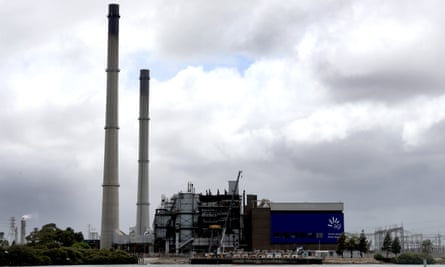Extract from The Guardian
Labor MPs told gas power is a necessary part of the transition to renewables

Last modified on Wed 28 Oct 2020 21.08 AEDT
Union officials have given Labor MPs a message that gas will be needed in the transition to renewable energy, and have urged them to defend blue collar workers in traditional industries or face losing another election.
The leadership of the Australian Workers Union and the construction and mining union attended a briefing organised this week by Labor’s country caucus, which is run by the shadow resources minister Joel Fitzgibbon.
Guardian Australia reported in September that union leaders were on the warpath internally, demanding that the shadow climate minister Mark Butler adopt a more supportive public stance about gas.
With parliament’s resumption, senior officials Tony Maher and Daniel Walton addressed between 30 and 40 Labor MPs, including Fitzgibbon and other frontbenchers, but not Butler or the party leader, Anthony Albanese.
The two warned MPs not to position themselves as opposed to blue collar workers or anti-jobs in traditional industries, and urged attendees to defend blue collar workers while plotting a path to jobs that would be created during the transition to low emissions energy.
Fitzgibbon has been campaigning internally for Labor to wind back the level of ambition for its medium-term emissions reduction target.
He wants the ALP to adopt the same 2030 target as the Coalition, and recently told Guardian Australia he could quit the shadow cabinet if the leadership takes a position he can’t defend. Butler has publicly opposed the move to decrease policy ambition.
Albanese on Wednesday told reporters Labor would hasten slowly to resolve that issue. With his senior colleagues openly at odds, Albanese told reporters Labor would delay the final decision on a 2030 target until after the next international climate change meeting, which is in Glasgow at the end of next year.
Scott Morrison says he will run full term, but the prime minister can call the election any time after the middle of next year.
Delaying the resolution of the issue risks Labor unveiling a new target during an election, or immediately before, which increases the likelihood of a scare campaign. Albanese has previously committed Labor to setting a new medium-term emissions reduction target consistent with scientific advice before the next federal election.
While the 2030 position is internally contested, Labor has already adopted a mid-century target of net zero emissions by 2050 – a target Fitzgibbon supports. But the Morrison government is continuing to resist signing up.
The prime minister told reporters on Wednesday – after a conversation on Tuesday night with the British prime minister Boris Johnson, where net zero was raised – that Australia would set its own targets, not Europe or London, because this was a matter of sovereignty.
The UK in 2019 became the first G7 country to legislate a target of net zero greenhouse gas emissions by 2050. Net zero is an increasingly uncontroversial position. This week Japan pledged to cut its greenhouse gas emissions to net zero by 2050.
South Korea also joined its east Asian neighbours Japan and China in declaring it would target “carbon neutrality” by or near the middle of the century.
The South Korean president, Moon Jae-in, told the national parliament he would end the country’s dependence on coal and invest in green infrastructure, clean energy and electric vehicles under a multibillion-dollar green new deal to achieve net zero emissions by 2050.
China last month pledged to reach carbon neutrality by no later than 2060. Korea, Japan and China are the biggest markets for Australia’s $110bn coal and gas exports.
While regional decarbonisation has clear implications for Australia’s fossil fuel exports, during a press conference on Wednesday, Morrison said he was not concerned about the shift by most of Australia’s major trading partners.
Morrison’s upbeat declaration came as the New South Wales Liberal environment minister, Matt Kean, launched a clarion call for his party to represent “the forgotten people” who “don’t march down George Street” and “don’t have a platform on Sky News” but support meaningful action on climate change.
Borrowing “the forgotten people” locution from the Liberal party founder, Robert Menzies, Kean told a forum organised by the Australia Institute on Wednesday that the free market was driving an inexorable transition to low-emission energy sources but “politics and ideology” had been getting in the way of market forces.
“Climate change didn’t start out as a political issue – we made it one – and this needs to end,” Kean said.
The NSW Liberal said climate action “should not be a partisan issue. It is not in the UK, it is not across Europe, it is not in places like Japan, in fact, largely, those jurisdictions are run by conservative governments and they are leading the way on this issue.
“What could be more conservative than protecting and handing our environment to the next generations better than we found it?”
No comments:
Post a Comment